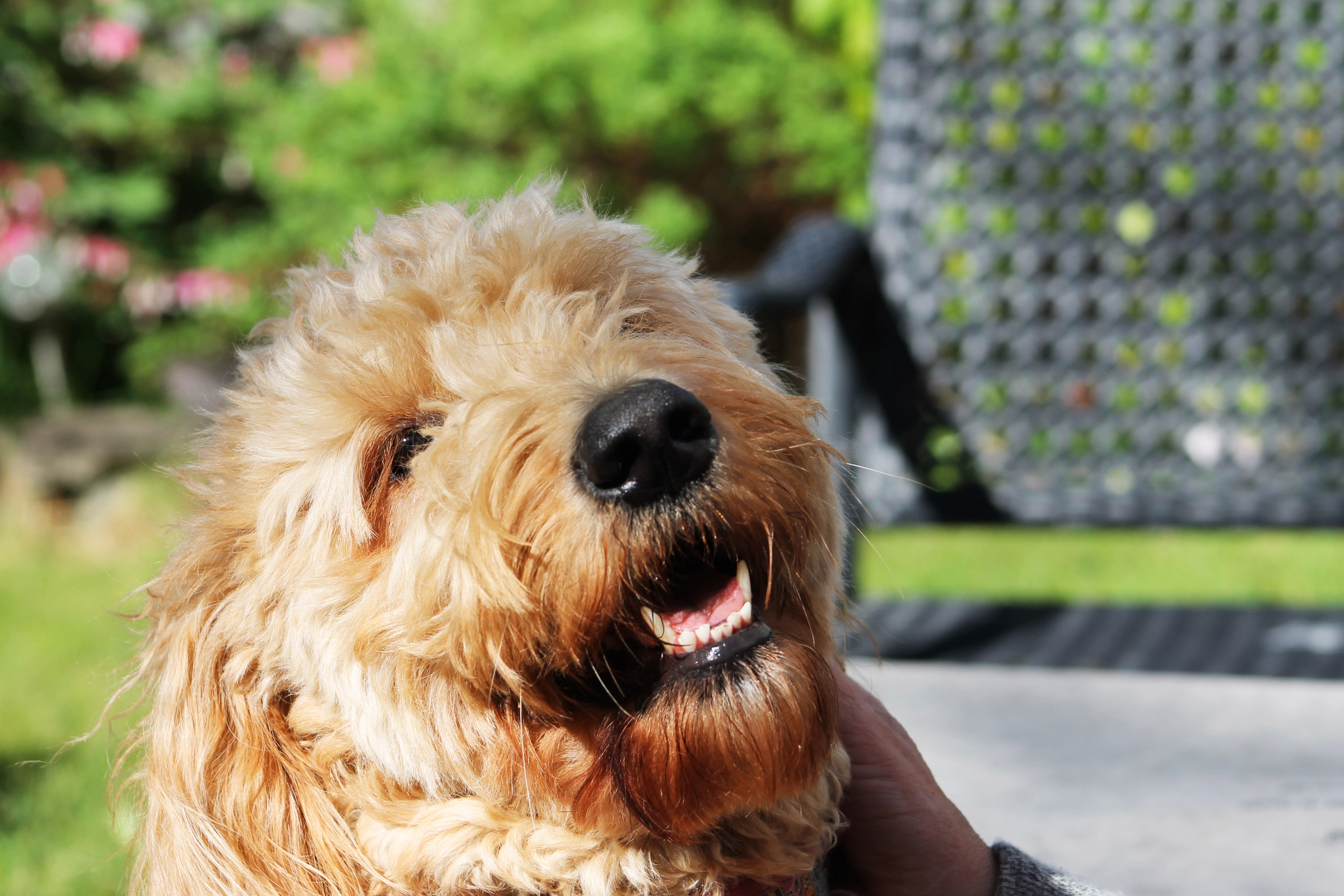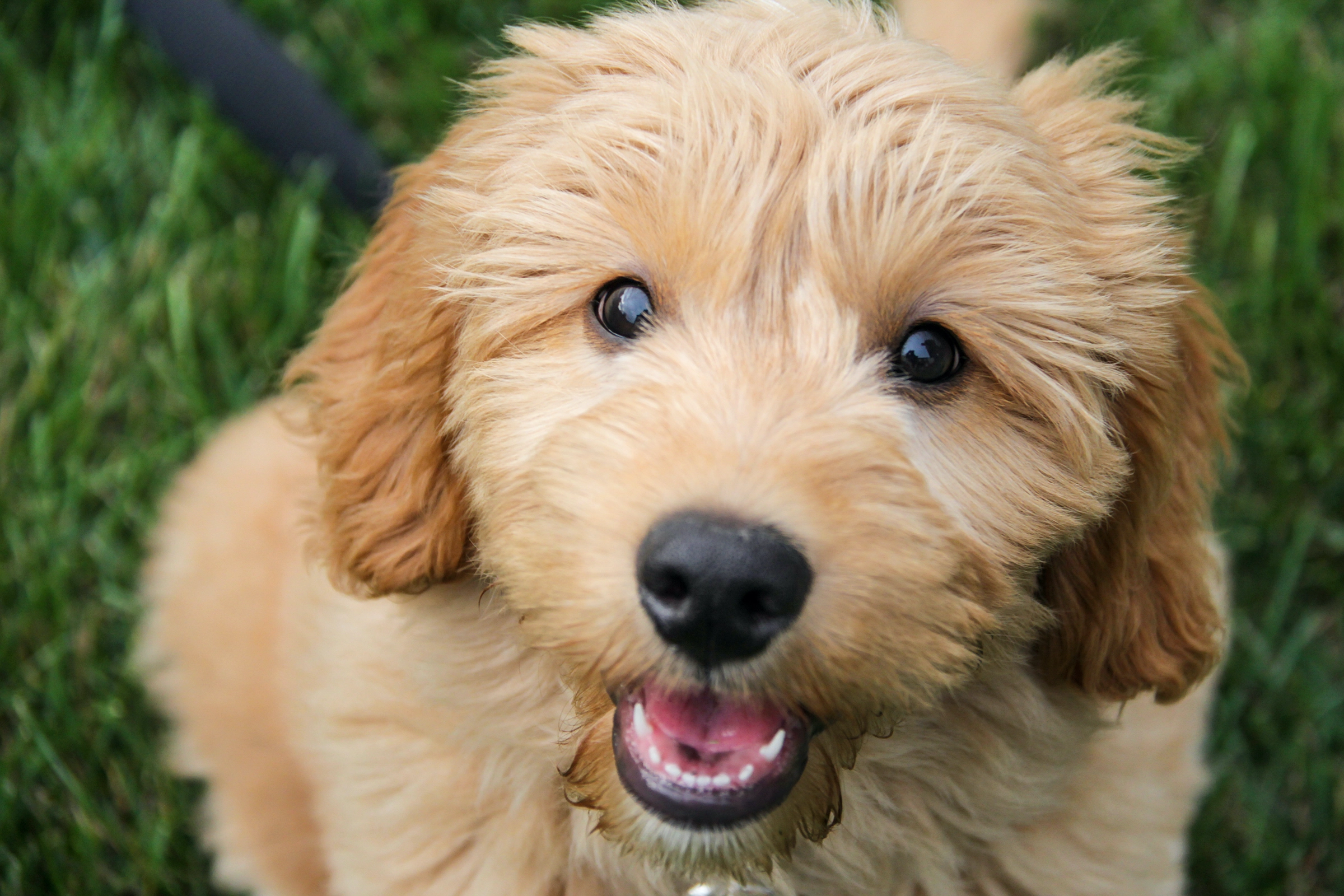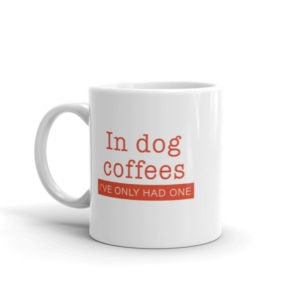This post may contain ads and affiliate links and we may earn a small commission when you click on the links at no additional cost to you. As an Amazon Affiliate, we earn from qualifying purchases. You can read our full disclaimer here.
Goldendoodle Teething: A Complete Guide for New Puppy Parents

Goldendoodle puppies are the epitome of cuteness, but like all puppies, they go through the uncomfortable phase of teething. If you’re the proud parent of a new puppy, understanding the Goldendoodle teething process is crucial for both your peace of mind and your puppy’s well-being.
Goldendoodle Teething Timeline
2-4 Weeks: Baby Teeth
The First Set of Chompers
Between 2 to 4 weeks old, your Goldendoodle’s baby teeth start to emerge. This initial set comprises about 28 tiny, sharp teeth.
They’re like little needles, and while they may not be strong enough to cause severe damage, they can certainly be felt when your pup decides to “mouth” you or chew on your hand.
Why So Sharp?
You may wonder why these baby teeth are so sharp. The reason is primarily functional. Sharp teeth make it easier for the puppy to latch onto its mother while nursing.
They also begin to learn the basics of chewing solid food, albeit soft and mushy at this point, which is a skill they’ll need throughout life.
Importance of Baby Teeth
Baby teeth serve as essential placeholders in your Goldendoodle’s gums, making way for the permanent teeth that will eventually take their place.
Think of them as training wheels, prepping the gums and helping to establish the shape of your pup’s adult mouth.
3-6 Months: Losing Baby Teeth
A Tooth Fairy for Dogs?
As your Goldendoodle grows between the ages of 3 to 6 months, the baby teeth start to loosen and fall out to accommodate the incoming adult teeth. This is a natural progression and not something to worry about.
Don’t be surprised if you find these tiny teeth scattered around the house, on their bed, or even in their food bowl. Some pet parents jokingly refer to this stage as the time to play “tooth fairy” for their fur babies.
Making Room for the Big Ones
During this stage, you may observe that the teeth falling out are quickly replaced by larger, stronger teeth.
These new teeth are preparing your Goldendoodle for an adult diet, which will include harder kibble and possibly raw or cooked meat, depending on your feeding preferences.
Watch for Overcrowding
It’s essential to monitor this stage closely. Sometimes, baby teeth don’t fall out as they should, leading to overcrowding in the mouth when adult teeth start to emerge. In such cases, a trip to the vet for possible tooth extraction may be necessary.
6-8 Months: Adult Teeth

The Final Count
By the time your Goldendoodle reaches 6 to 8 months, most of the adult teeth should be in place. A fully-grown Goldendoodle will have around 42 adult teeth, significantly more than the baby set. These are built to last and are crucial for chewing and breaking down food efficiently.
Types of Adult Teeth
Your Goldendoodle will develop different kinds of adult teeth, including incisors, canines, premolars, and molars. Each serves a specific purpose in the eating process, from cutting and shearing to grinding food.
Dental Check-Up
Once your Goldendoodle completes this stage, it’s advisable to schedule a vet appointment to ensure all adult teeth have come in correctly and there are no lingering baby teeth or other dental issues.
Proper dental hygiene starts now, so consider this the kick-off to a lifetime of caring for your Goldendoodle’s teeth.
Understanding the teething timeline in depth allows you to better care for your Goldendoodle during this critical growing phase. With proper care and attention, you can ensure your pup grows up with a healthy, strong set of teeth.
Signs and Symptoms of Teething in Goldendoodles
Chewing Behavior
Teething is a natural but sometimes challenging part of puppyhood, and one of the most noticeable signs that your Goldendoodle is teething is increased chewing behavior.
Your pup will have an instinctual urge to chew, which can sometimes lead to the destruction of household items if not managed properly.
- Unrelenting Urge to Chew
- New teeth cause pressure and discomfort.
- Puppies seek relief through chewing.
- Targets of Opportunity
- Common targets: Shoes, furniture, toys, and even your fingers.
- Unchecked chewing can lead to destruction of belongings.
- Safe Chewing Outlets
- Provide chew toys specifically designed for teething puppies.
- This gives them a safe and effective way to ease discomfort.
Drooling with Goldendoodle Teething
While drooling may not be the most pleasant aspect of pet ownership, it’s completely normal when your Goldendoodle is teething.
Excessive drooling is the body’s way of lubricating the gums and new teeth, so don’t be alarmed if you notice more saliva than usual.
- The Drool Factor
- Excessive drooling is common and usually harmless.
- You may find puddles or wet spots around your home.
- Why the Drool?
- Teething stimulates saliva production.
- The body naturally lubricates the gums and emerging teeth.
- Drool Management
- Keep a small towel handy for clean-up.
- Consider using a water-resistant mat under your puppy’s bed or eating area.
For more on drooling, check out our post, Do Goldendoodles drool?
Red or Swollen Gums
One of the most direct signs that your Goldendoodle puppy is teething is the presence of red or swollen gums.
Regularly checking your puppy’s oral health can help you catch these symptoms early and address any discomfort they may be experiencing.
- A Clear Indication
- Red or swollen gums are direct signs of teething.
- Caused by the pressure of new teeth emerging.
- Regular Checks
- Habitually check your puppy’s mouth for redness and swelling.
- Consult your vet if the condition appears severe.
- Natural Remedies
- Cold chew toys or dog-safe teething gels can help ease inflammation.
- Always consult your vet before applying any remedies.
Irritability
During the teething phase, you might notice some changes in your Goldendoodle’s behavior. They might be a bit moodier or less patient than usual.
This irritability is often due to the discomfort they’re experiencing, so it’s important to approach this period with understanding and compassion.
- A Mood Change
- Your Goldendoodle may be less patient and more irritable.
- Possible symptoms: Short temper, less playful, whining, or whimpering.
- Dealing with Irritability
- Offer extra cuddles, soothing toys, or a quiet space for relaxation.
- Understand that this behavior stems from discomfort.
- When to Seek Help
- If irritability becomes severe or prolonged, consult your vet.
- Could be a sign of an underlying issue, such as an impacted tooth or infection.
Learn more about your Goldendoodle! Check out our post about clingy Goldendoodles.
Tips for Soothing Goldendoodle Teething Pain

Teething can be a stressful experience for your Goldendoodle and you. However, you can minimize the discomfort and challenges by employing various soothing techniques.
Here are some effective tips to consider.
Chew Toys
- Opt for high-quality, durable chew toys designed explicitly for teething puppies to avoid choking hazards.
- Choose toys of an appropriate size that fit comfortably in your puppy’s mouth.
- Select toys made from non-toxic, BPA-free materials for safety.
- Offer a variety of textures, such as rubber toys, rope toys, and plush toys, to provide multi-faceted relief for sore gums.
Cold Treats
- Use frozen carrot sticks cut into manageable sizes as a nutritious and cooling treat.
- Purchase special puppy teething treats from pet stores designed to be frozen, checking the age and size recommendations.
- Create homemade frozen treats using low-sodium chicken broth, avoiding any spices or seasonings.
- Store these treats in airtight containers and offer them in moderation to avoid digestive issues.
Puppy Teething Gel
- Choose teething gels that are formulated specifically for dogs, avoiding those designed for humans, which may contain harmful substances.
- Always consult your veterinarian before using any teething gel to get advice on proper application and dosage.
- Perform a patch test to check for allergic reactions before applying the gel liberally.
- Read and adhere to the application instructions on the product’s packaging to ensure effective relief.
Regular Vet Checks for Goldendoodle Teething
- Schedule routine dental checks with your veterinarian to monitor the health of your puppy’s emerging teeth and gums.
- Use these visits as an opportunity to consult with your vet about other teething relief products and strategies.
- Early identification of dental issues, like impacted teeth or gum infections, is possible through regular vet visits.
- Gain peace of mind through these examinations, confirming that your Goldendoodle’s teething process is proceeding as it should.
These tips should serve as a practical guide for navigating your Goldendoodle’s teething phase. Always remember to consult your veterinarian for personalized advice tailored to your puppy’s specific needs.
Dental Care for Your Goldendoodle Teething Puppy
Taking care of your Goldendoodle’s teeth is a critical aspect of their overall health and well-being. By incorporating dental care into their routine from a young age, you’re setting the foundation for a lifetime of good dental health. Here’s how you can go about it:
Regular Brushing
One of the most fundamental ways to ensure your Goldendoodle’s dental health is through regular brushing. Starting early offers several benefits:
- Prevents Plaque Buildup: Regular brushing helps to remove food particles and prevent plaque from forming on your puppy’s teeth.
- Reduces Bad Breath: Regular dental care can significantly decrease bad breath, making cuddle time much more enjoyable.
- Gum Health: Consistent brushing also stimulates the gums, which can be particularly helpful during the teething phase.
- Long-Term Benefits: Getting your Goldendoodle used to tooth brushing early on will make it easier to maintain this routine as they grow older.
Dental Chews and Treats
In addition to brushing, there are other products designed to help maintain your dog’s dental health.
- Tartar Control: Dental chews can help to control tartar, reducing the likelihood of dental issues down the line.
- Freshens Breath: Many dental treats are formulated to freshen breath, which is an added bonus.
- Convenience: Dental chews are an easy and convenient way to support dental health, especially when you’re short on time.
- Enjoyable for Your Dog: Many dogs love dental chews, so they can be used as a reward while also serving a practical purpose.
Vet Dental Cleanings
Professional dental cleanings are an essential part of maintaining your Goldendoodle’s dental health.
- Deep Cleaning: Unlike brushing and chews, a professional dental cleaning can reach areas that are often missed, offering a deep clean.
- Early Detection: Regular vet dental cleanings allow for the early detection of potential issues like gum disease or cavities, enabling timely treatment.
- Expert Advice: These visits are a great time to speak with your veterinarian about any concerns you have regarding your Goldendoodle’s dental health.
- Peace of Mind: Knowing that your pet’s teeth are being professionally cared for can offer a great sense of relief.
By incorporating regular brushing, dental chews, and professional dental cleanings into your Goldendoodle’s routine, you can help ensure a lifetime of healthy smiles.
Always consult your veterinarian to tailor a dental care plan that’s best suited for your pup.
Conclusion to Goldendoodle Teething

Goldendoodle teething can be a challenging time for new puppy parents, but understanding the process can make it easier for you and your furry friend. Equip yourself with the right tools and knowledge to sail through this phase with minimal discomfort.
And remember, as with all aspects of raising a healthy, happy Goldendoodle, when in doubt, consult your vet.
-

Coffee Mug – In Dog Coffees I’ve Only Had One
$11.95 – $14.95 Select options This product has multiple variants. The options may be chosen on the product page
